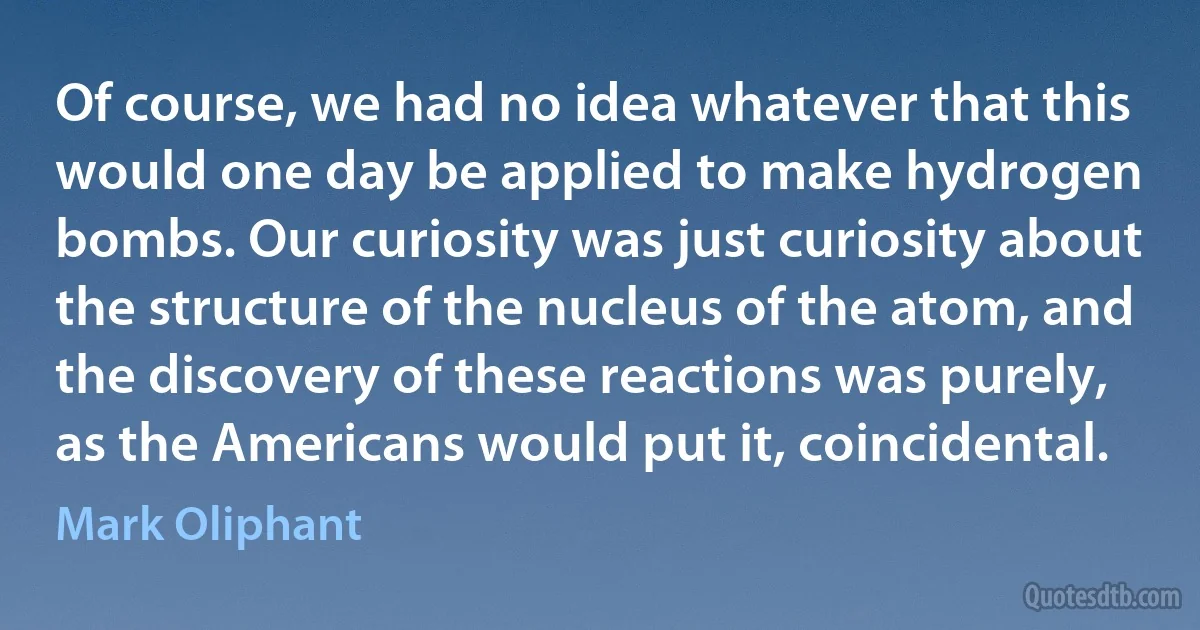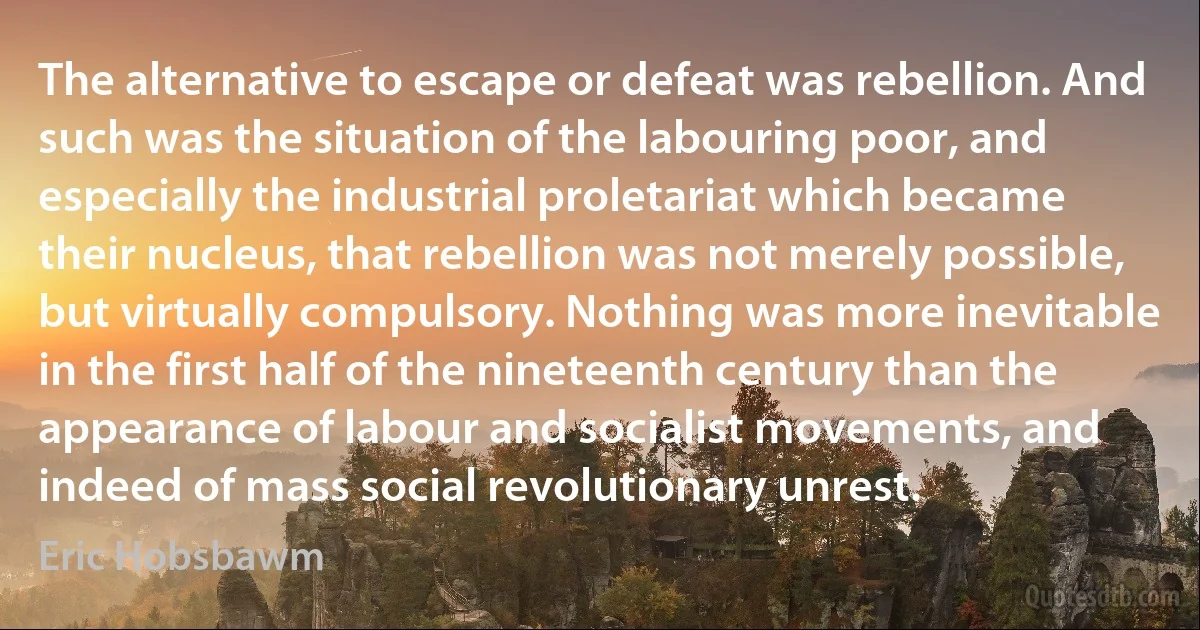Nucleus Quotes - page 4
When we have found how the nucleus of atoms is built up we shall have found the greatest secret of all - except life. We shall have found the basis of everything - of the earth we walk on, of the air we breathe, of the sunshine, of our physical body itself, of everything in the world, however great or however small - except life.

Ernest Rutherford
In the firm expectation that when London shall be a habitation of bitterns, when St. Paul and Westminster Abbey shall stand shapeless and nameless ruins in the midst of an unpeopled marsh, when the piers of Waterloo Bridge shall become the nuclei of islets of reeds and osiers, and cast the jagged shadows of their broken arches on the solitary stream, some Transatlantic commentator will be weighing in the scales of some new and now unimagined system of criticism the respective merits of the Bells and the Fudges and their historians.

Percy Bysshe Shelley
When a child comes in, I believe that it's a 'multipersonhood,' and it knows it, its consciousness knows it, and it has a nuclei in the center of its consciousness that is the repository of all experience and all knowledge. And when you look in the eyes of your baby and you feel this sense that they are an old soul, I believe indeed they are.

Shirley MacLaine
When the soul has recognized that its true being is beyond this phenomenal nucleus which is the empirical ego and when it willingly holds fast to the Center − and this is the chief virtue, poverty, or effacement, or humility − the ordinary ego appears to the soul as outward to itself, and the world, on the contrary, appears to it as its own prolongation; all the more so since it feels itself everywhere in the Hand of God.

Frithjof Schuon
It is significant that we owe the first explicit formulation of the principle of recurrence to the genius of Blaise Pascal... Pascal stated the principle in a tract called The Arithmetic Triangle which appeared in 1654. Yet... the gist of the tract was contained in the correspondence between Pascal and Fermat regarding a problem in gambling, the same correspondence which is now regarded as the nucleus from which developed the theory of probabilities.
It surely is a fitting subject for mystic contemplation that the principle of reasoning by recurrence, which is so basic in pure mathematics, and the theory of probabilities, which is the basis of all deductive sciences, were both conceived while devising a scheme for the division of stakes in an unfinished match of two gamblers.

Blaise Pascal
According to Herschel, the sun consisted of three essentially different parts. First, there was a solid nucleus, non-luminous, cool, and even capable of being inhabited. Second, above this was an atmosphere proper; and, lastly, outside of this was a layer in which floated the clouds, or bodies which gave to the solar surface its intense brilliancy.

William Herschel
Even though I had long been taught that the genes of the brain are the governors of behavior, the absolute masters of our fate, our work showed that, in the brain as in bacteria, genes are also servants of the environment. ...An environmental stimulus... activates modulatory interneurons that release serotonin. The serotonin acts on the sensory neuron to increase cyclic AMP and to cause protein kinase A and MAP kinase to move to the nucleus and activate CREB. The activation of CREB, in turn, leads to the expression of genes that changes the function and the structure of the cell.

Eric Kandel
It is an old story in physics that higher resolving power leads to new effects. We remember that the magnetic moment of the nucleus was itself discovered through the hyperfine structure of lines in the visible spectrum. The nuclear resonance line in a liquid or gas can be remarkably narrow, as you have already seen. As soon as the reason for this was recognized, it became clear that the only practical limit on resolution was the inhomogeneity of the magnetic field applied to the specimen.

Edward Mills Purcell
Enya left school in 1979, and we had already been a nucleus, so it was probably difficult for her. She wanted to go off and do her own thing. Tensions were created because we never answered any of the questions. If you're going to answer questions, people aren't going to believe you anyway. The proof of the pudding is that Enya is my sister, and I love her dearly, and we get on really, really well.

Enya


